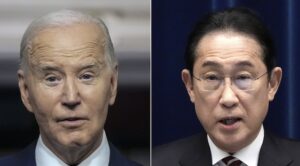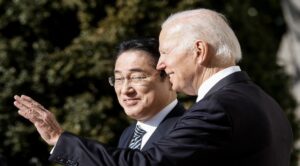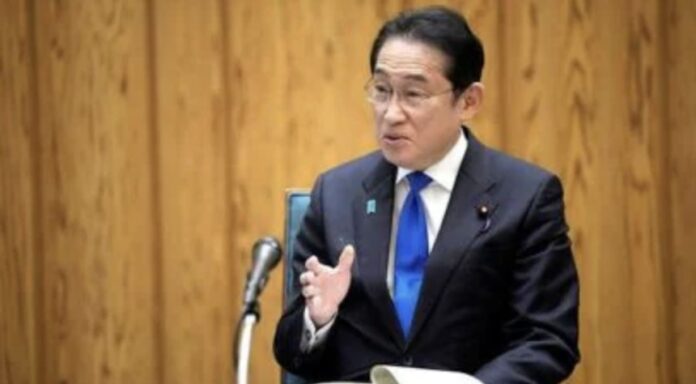My family and I love Japan. We have spent quite a bit of time in the Land of the Rising Sun. Japan is a wonderful place to visit, despite its demographic issues.
It was fascinating to watch Japan’s Prime minister, Fumio Kishhida, discuss the current geopolitical scenario and how Japan will continue to increase its military force.
Fumio Kishhida, the Japanese prime minister, told CNN on Sunday that spiraling geopolitical tensions are pushing the world towards a “historic turn point” and forcing Japan to alter its defense posture. This comes ahead of an upcoming summit between US President Joe Biden and Japanese Prime Minister Fumio.
Kishida stated during an interview in his Tokyo private residence that “we are facing a historic turning point as we witness Russia’s Ukraine invasion, the continued situation in the Middle East as well as in East Asia.”

He said, “That’s why Japan decided to strengthen its defense capabilities. We have changed Japan’s policy in terms of security on these fronts.”
This announcement comes days before a meeting between President Biden, and a joint session address by the U.S. Congress. Could this be a warning to the Biden Administration that they’re concerned that America no longer has Japan’s back? I have worked in Japan and dealt with many Japanese people. They are good at making veiled remarks, and this certainly looks like one.
This message appears to be directed at the White House. I guess this message translates as “We are not sure you still have our backs.”
PM Kishida made some general statements in the interview about the direction of the Japan Self-Defense Forces.
The prime minister, who took office in Tokyo in 2021, has overseen a major shift in Tokyo’s defense posture. He has shifted away from the pacifist Constitution imposed by the United States after World War II. His goal is to increase defense spending by about 2% to its GDP by 2027 and to acquire counterstrike capability.
In addition to focusing on the tensions in the Pacific, Kishida also made other interesting comments when explaining the reasons behind the increase.
Kishida, when asked about this shift, pointed out the “severe” and “complex” security environment that surrounds his East Asian country, the fourth largest economy in the world.

“In our neighborhood, some countries are developing nuclear weapons and ballistic missiles, while others are building their defense capabilities in a secretive way. He said that there was also a unilateral effort to change the status quo in the East China Sea as well as the South China Sea by force. This appeared to be referring to Chinese maritime aggression concerning territorial disputes between the Philippines and Japan.
We can assume that he is referring to North Korea and China. Both are serious concerns for Japan. While PM Kishida will be in the U.S. there will be a trilateral event between President Biden and PM Kishida as well as representatives of the Philippines who are currently having a low-level conflict with China over fisheries. Japan should also keep an eye out for Russia. The two countries have had past conflicts, and Japan is looking at Russian territory across the Sea of Japan. Russia still controls the Sakhalin Islands, which were a large part of Japanese territory until the Soviet Union took it over in 1945.
Japan has a rich history and could still have a bright future if it can overcome its demographic crisis. While Japan is still a technologically advanced nation, it’s not the Japan of 1941 or 1904. Japan today can be more like the United States, but with a Japanese touch: a high-tech force that is geared towards defense and not conquest. They use technology and precision to increase their force multipliers to solve their population problems. In addition to holding a prominent position in the Western Pacific, Japan is also America’s closest ally in this region. It is not too late for Japan if they remember their great military traditions and regain them while letting go of the old expansionist goals.
Japan’s future will hinge on the next two decades. PM Kishida appears to be aware of this.




